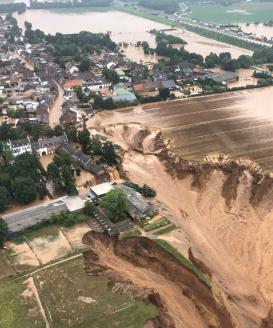Every new day brings news of environmental challenges, and the worst days bring news of environmental disasters—some sudden and shocking, some slow and insidious. Climate change, toxic pollution, zoonotic diseases, biodiversity loss, and many other issues that fall under the rubric of ‘the environment’ cycle through our news feeds at seemingly faster and faster speeds. In this acceleratory context, the earth and environmental sciences play a critical role in defining problems and proposing solutions that are grounded in the best available evidence and the most up-to-date scientific theories. But these 'crisis sciences,' as one might call them, are also under strain as rapidly changing social and environmental conditions challenge their basic assumptions and operating procedures. Whether they are capable of generating knowledge of the necessary kind, and at the necessary velocity, remains to be seen.
The situation is rendered even more complex—and for historians of science, even more interesting—by the fact that the earth and environmental sciences are not the only ways of making knowledge in this domain, nor are they always the most authoritative. The environmental domain is crowded with alternative forms of knowledge-making: regulatory, legal, local, traditional, and others. We know very little about how science has interacted with these other knowledge systems, and what consequences these interactions have had on efforts to address pressing challenges and forestall disasters. Research in Department II aims to understand the complex interactions among environmental knowledge systems in the past and present, with a particular focus on moments of crisis, however they may be defined.
The department’s focus on environmental knowledge also opens up another set of questions. The environment is not just any object of knowledge-making, scientific or otherwise; it is also the material setting for political life. This becomes particularly apparent in moments of crisis, when, for instance, material conditions may deteriorate to such an extent that the basic mechanisms of representative democracy grind to a halt. But it is always true to one degree or another. In this sense, the environment is both a problem for politics and a precondition for politics. And that means that the production of knowledge about the environment is deeply consequential for collective life, helping to define the risks and resources and set the parameters for action. Research in the department therefore seeks to understand how the earth and environmental sciences, and environmental knowledge more broadly, have helped shape our imagination of what is politically possible, desirable, and necessary.

